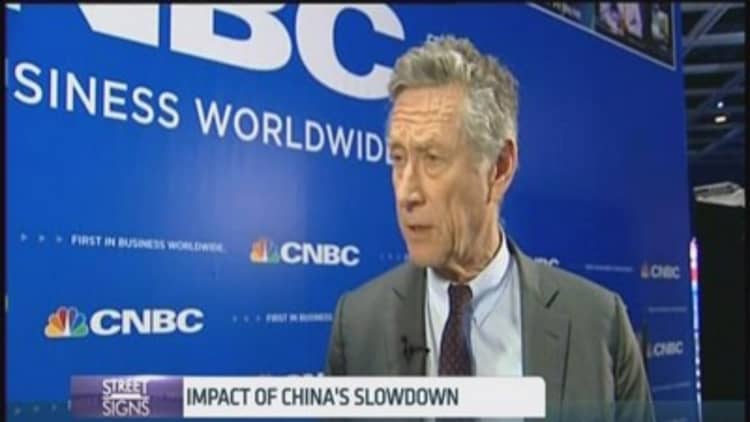The International Monetary Fund (IMF) trimmed its global growth forecast for 2015-16, cautioning that the boost from lower crude oil prices would be offset by dimmer economic prospects for China, Russia, the euro area, Japan and oil producers.
In its World Economic Outlook (WEO) Update published on Tuesday, the IMF projected the world economy would expand by 3.5 percent this year and 3.7 percent next year, picking up from 3.3 percent in 2014 but lower than its previous estimates. In October, it predicted global growth for this year and next at 3.8 and 4 percent, respectively.
"Global growth will receive a boost from lower oil prices," the IMF said in the report. "But this boost is projected to be more than offset by negative factors, including investment weakness as adjustment to diminished expectations about medium-term growth continues in many advanced and emerging market economies," it said.
The downgrade comes days after the World Bank lowered its growth forecast for global growth to 3 percent from the 3.4 percent forecast made in June, warning that the world economy is overly dependent on the single engine of the U.S. recovery.

The U.S. was the only major economy to receive an upward revision to growth from the IMF. The world's largest economy is now expected to grow 3.6 percent this year, up from a previous forecast of 3.1 percent, with domestic demand supported by oil prices and an accommodative monetary policy stance.
Growth in China, on the other hand, is expected slow further to 6.8 percent as the world's second largest economy reorients towards consumption and away from the real estate sector and shadow banking.
Read MoreIMF's Lagarde on Swiss move: 'A bit of a surprise'
"The authorities are now expected to put greater weight on reducing vulnerabilities from recent rapid credit and investment growth and hence the forecast assumes less of a policy response to the underlying moderation. Slower growth in China will also have important regional effects, which partly explains the downward revisions to growth in much of emerging Asia," the IMF said.
Oil exporter Russia saw the sharpest downward revision of any other country, to a contraction of 3 percent from a previous forecast for a 0.5 percent expansion, reflecting depressed crude prices and increased geopolitical tensions.
Meanwhile, Japan and the euro zone are expected to grow a meager 0.6 percent and 1.2 percent this year.
'Cross currents'
The world economy is contending with "strong and complex cross currents": forces that are positive for some economies and negative for others, making for a complicated picture.
"Good news for oil importers, bad news for exporters. Good news for commodity importers, bad news for exporters. Continuing struggles for the countries which still show scars of the crisis, not so for others," Olivier Blanchard, economic counsellor and director of the research department at WEF said in Beijing.
"Good news for countries more linked to the euro and the yen, bad news for those more linked to the dollar. In short, many different combinations, many different boxes, and countries in each box," he said.
In such an environment, the IMF warned of risks to its outlook including stagnation in the euro area and Japan, and financial turmoil stemming from an increase in U.S. interest rates.
"The most obvious downside risks involve stagnation in the euro area and in Japan. In both, using the three arrows (borrowing the expression from Abenomics), monetary policy, fiscal policy, and structural policies, continues to be of the essence," Blanchard said.
On the upside, however, the decline in oil prices could be a "stronger shot in the arm" than is implicit in current forecasts, he said.
"In other words, when we meet again in the spring, our forecasts may turn out to have been a bit too pessimistic. I very much hope so."


